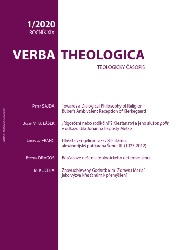Towards a Dialogical Philosophy of Religion: Buber’s Ambivalent Reception of Kierkegaard
Towards a Dialogical Philosophy of Religion: Buber’s Ambivalent Reception of Kierkegaard
Author(s): Peter ŠajdaSubject(s): Christian Theology and Religion, Contemporary Philosophy, Existentialism, Philosophy of Religion
Published by: VERBUM - vydavateľstvo Katolíckej univerzity v Ružomberku
Keywords: Philosophy of religion; Dialogical philosophy; Philosophy of existence; Acosmism;
Summary/Abstract: Martin Buber is a well-known representative of dialogical philosophy who wrote extensively on the topic of religion. He developed his own philosophy of religion and engaged in polemics with other philosophers of religion on the importance of dialogical elements in this field of study. In this paper I examine his complex polemic with Søren Kierkegaard which is part of Buber’s larger project of developing dialogical philosophy of religion. Buber’s approach to Kierkegaard is ambivalent: on the one hand he considers Kierkegaard a precursor to dialogical philosophy, on the other hand he claims that Kierkegaard compromises basic Christian doctrines. Buber adopts dialogical notions elaborated by Kierkegaard and develops them further while rejecting those notions that he deems incompatible with the dialogical approach. The philosophical-religious issue of the individual’s relation to God is at the center of Buber’s polemic.
Journal: Verba Theologica
- Issue Year: XIX/2020
- Issue No: 1
- Page Range: 5-15
- Page Count: 11
- Language: English

